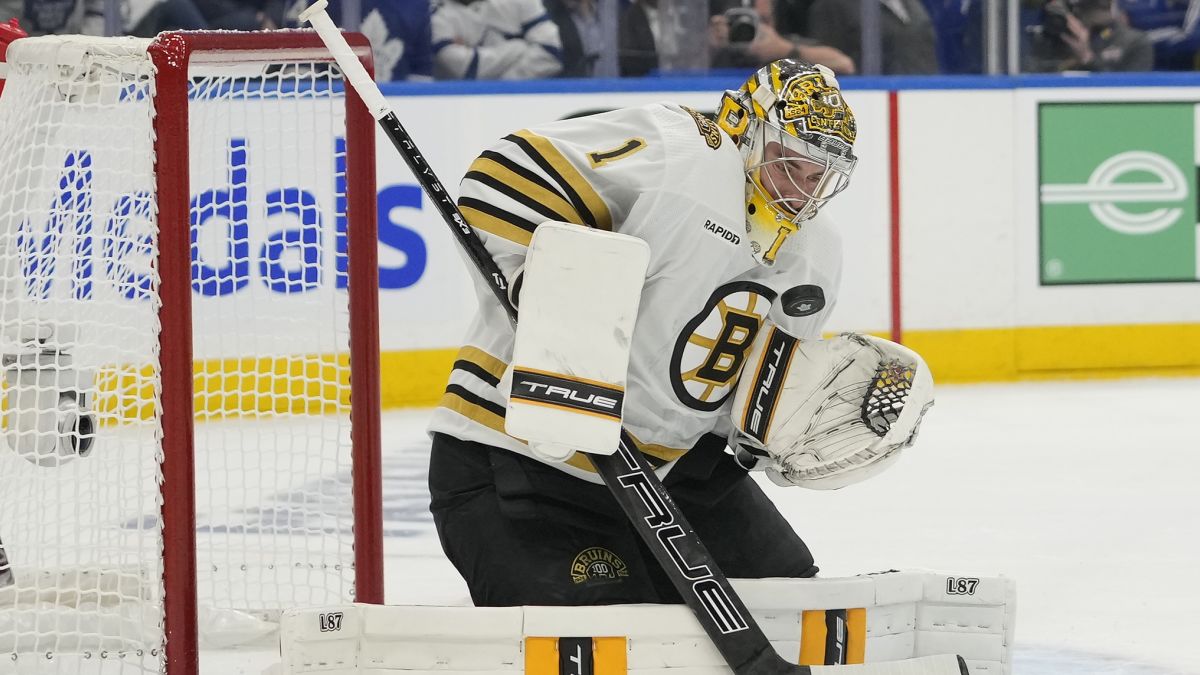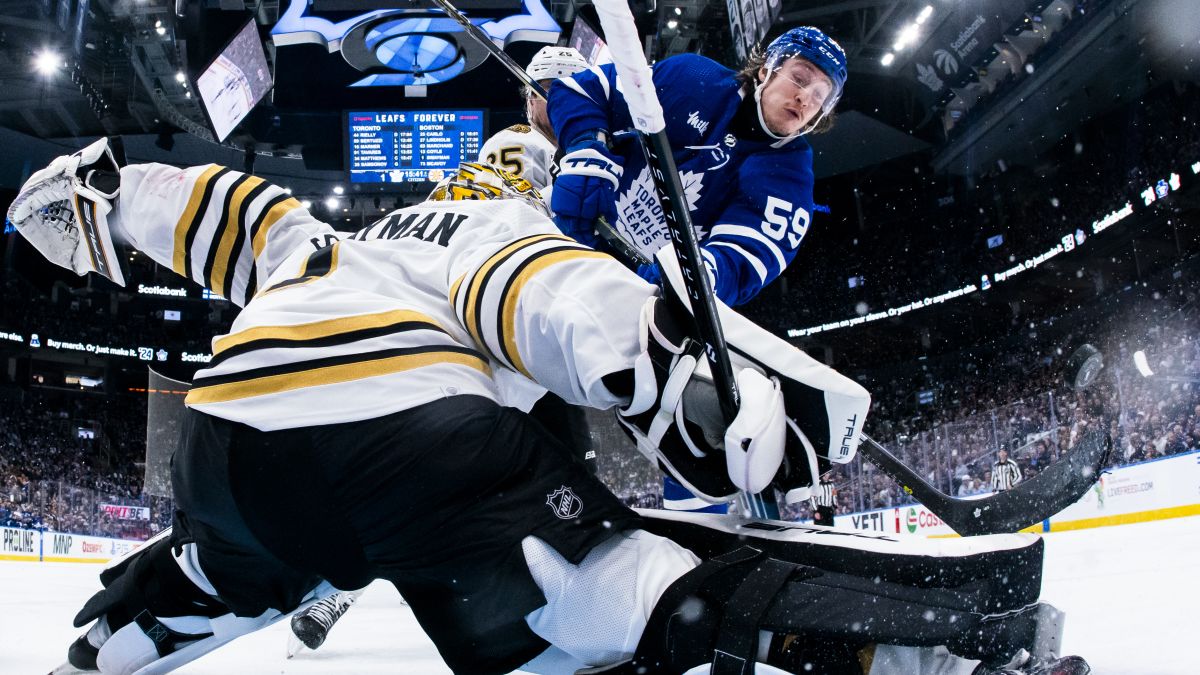Building Back the Bruins is a five-part series in which we'll examine the slow, difficult process of turning the team back into a perennial Stanley Cup contender. Today in Part 4, we look at the Cassidy Effect.
It was probably the toughest decision Bruins GM Don Sweeney made last season, but making a coaching change was also the biggest impact move that the B’s executive has enacted in his two seasons in the position.
Making Bruce Cassidy the head coach ignited a sleeping Bruins team with a more wide-open offense while maintaining a defense that didn’t lose any of its stoutness. The move led the B’s to a spectacular 18-8-1 that represented their best-sustained stretch in the past three seasons.
BUILDING BACK THE BRUINS
- Part 1: Basking in the Fountain of Youth
- Part 2: The improvement of Don Sweeney
- Part 3: Strengthening their core was key to B's revival
- Part 4: Cassidy a key part of this season's improvement
- Part 5: When will B's emerge as a true Cup contender?
The Bruins also showed an ability to power through adversity in that time, whether it was the late-season win over the Islanders in Brooklyn that essentially punched their playoff ticket while ending a four-game losing streak or a solid showing in a six-game series against Ottawa while missing three of their top-four defensemen for pretty much the entire matchup.
The reluctance to fire Claude Julien clearly came from a good place with a coach who had guided the team to the Stanley Cup mountaintop in 2011, had qualified for the playoffs in seven consecutive seasons and was the winningest coach in the franchise history.
Boston Bruins
Still, it was just as crystal clear midway through this past season that the players needed a different voice leading them from the coach’s office. Julien himself probably needed a fresh start away from an organization that was moving away from some of the conservative, old-school ways that Julien preached in Boston over the past decade.
Cassidy turned out to be that new voice and his fresh presence injected into Boston’s team dynamic was the single biggest difference-maker that kick-started the Bruins back into the Stanley Cup playoffs for the first time in three seasons.
“I was around since training camp, so I knew the players and some of their strengths and weaknesses, how we played, where I thought we could be better, and where the players were looking for improvements after talking to them quickly in those first couple of days,” said Cassidy. “So, we implemented a couple of things, and off we went. You hope that you make the right call in those areas. We talked about, right away, about being a team that would play – and the term ‘play fast’ gets thrown around a lot out there…but we were going to upgrade our transition game. [We wanted to improve] how we were going to move the puck quicker and attack. I guess that was our exact description of playing fast.
“I think it worked. It got our D involved, so you start scoring and obviously, that helped. People get excited about that – scoring goals and getting on offense. I don’t think we lost a lot on the defensive side of things. As we went along, we tried to maintain that balance. So, that was the message right away. Players bought in and we had success, and that obviously helps. Winning solves a lot of problems and puts a lot of smiles on people’s faces. That part of it went very well.”
One big key to Cassidy’s success was the system tweaks getting embraced by core B’s veterans Patrice Bergeron, Brad Marchand, Zdeno Chara, David Krejci, Tuukka Rask, David Backes and Torey Krug, among others. There was also some immediate success from young players Ryan Spooner and Frank Vatrano who had chafed under the Julien regime, though both of those players would revert back to their default settings later under Cassidy as well.
It wasn’t much of a secret that Bruins team president Cam Neely was probably okay with making a coaching change earlier in the process, and ultimately an earlier change might have been the right call given the results. Still, in the final gauge of things, it was obvious the players had grown weary of the message and Julien’s voice wasn’t getting through as it had earlier.
Cassidy, on the other hand, preached a much more aggressive approach offensively that got more involvement from the defensemen and a wider variety of scoring than being largely dependent on Brad Marchand and David Pastrnak at the beginning of the season.
“I felt that it was going to be better [after firing Julien]. Did I expect the run we went on? No. I don’t think anybody did, but the environment and the way we were practicing changed right from the very next day,” said Neely. “Claude’s a fantastic coach and he’s had a lot of success. But you’re talking 10 years and you’re talking 82 plus games a year with the same voice. Regardless of how good a coach is at some point [you need a change].
“It’s not 16 games a year. It’s 82 games a year and you’re on the ice almost on a daily basis. It’s not so much about his ability as a coach. From the pulse of things and from what Donnie was telling me, it was just time. Fortunately, things worked out and Bruce was a good call.”
Cassidy being a good call turned out to be the understatement of the year and he was rewarded with a multi-year contract for the permanent gig just days after the failed first-round series against the Ottawa Senators. Since Cassidy assumed head coaching responsibilities on Feb. 9, the Bruins ranked first in the NHL in goals per game (3.37), first in the NHL in fewest shots allowed (741), tied for second in wins (18), tied for second in power-play percentage (27.8), tied for third in goals allowed per game (2.30), tied for fifth in faceoff percentage (53.6) and tied for sixth in the NHL in takeaways (229).
More importantly, Cassidy fostered an environment where young Bruins players felt like they were going to get a fair shake and all players felt like they weren’t going to get chastised, or bumped up to the press box if they made aggressive mistakes to try and generate offense.
“It’s no secret that I appreciate the way that [Bruce Cassidy] thinks the game, and I think we played well in front of him. Guys wanted to compete for him and I think his record speaks for itself when he popped in,” said Torey Krug, who, along with Zdeno Chara, Tuukka Rask, Patrice Bergeron, Marchand and David Backes, was among players endorsing Cassidy publicly on the B’s break-up day as they cleaned out their lockers and returned home following the season. “I think he is a guy that the players want to play for, and I think a lot of [other Bruins players] would echo that same message.”
It was obvious to those closely following the Bruins that a coaching change was needed as far back as the end of the 2015-16 season, but the Black and Gold became prime examples of the phrase “better late than never” once Cassidy was installed. Now, the intriguing possibilities are there with a full season of Cassidy behind the bench and an energized group stocking up on the kind of youth and skillful talent that the new B’s coach can bring the best out of.
That should bring more excitement and enthusiasm to training camp next in the fall than we’ve seen in at least three years and perhaps longer given the young talent coming in that he can develop in the NHL.


